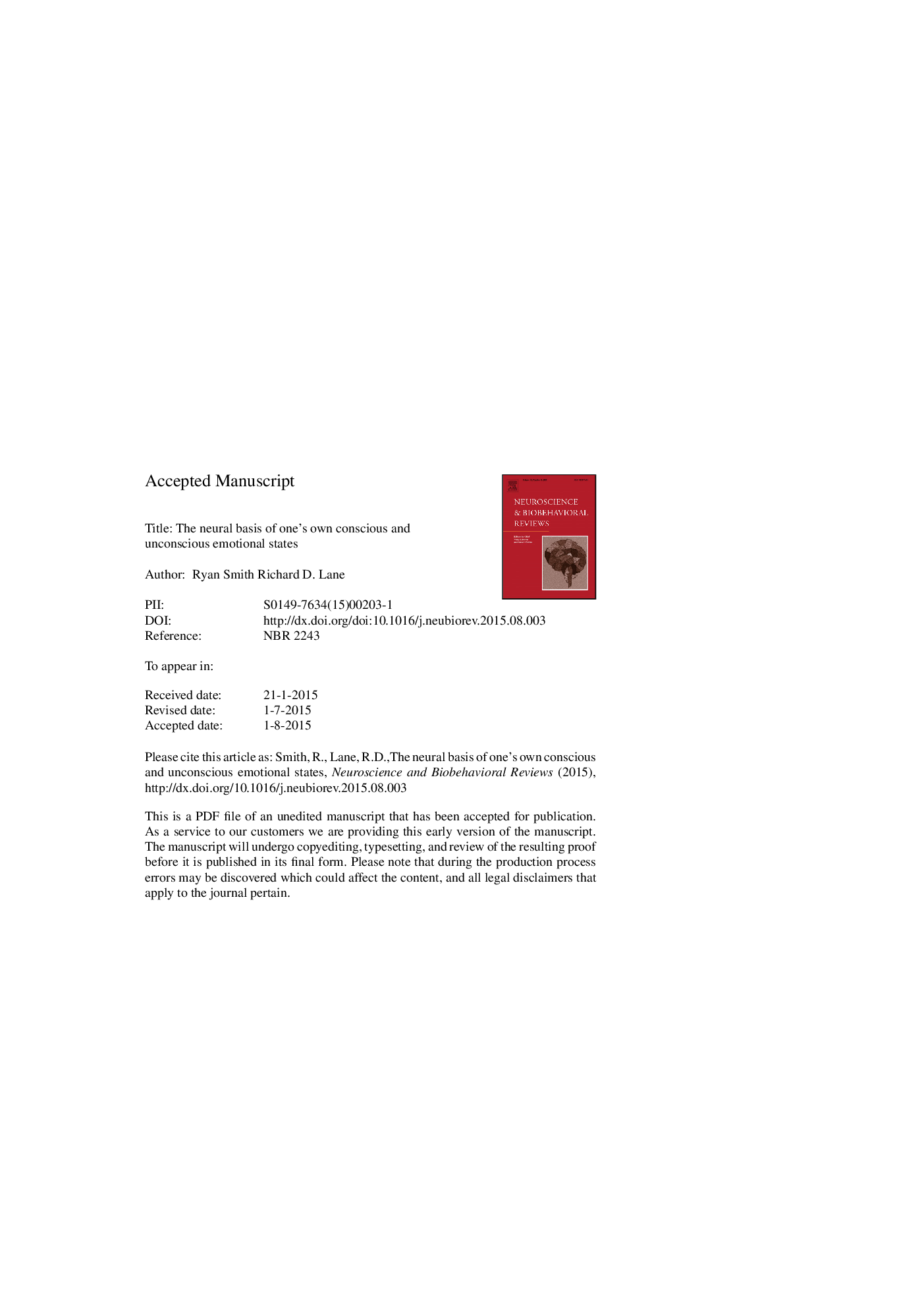| Article ID | Journal | Published Year | Pages | File Type |
|---|---|---|---|---|
| 7303203 | Neuroscience & Biobehavioral Reviews | 2015 | 88 Pages |
Abstract
The study of emotional states has recently received considerable attention within the cognitive and neural sciences. However, limited work has been done to synthesize this growing body of literature within a coherent hierarchical, neuro-cognitive framework. In this article, we review evidence pertaining to three interacting hierarchical neural systems associated with the generation, perception and regulation of one's own emotional state. In the framework we propose, emotion generation proceeds through a series of appraisal mechanisms - some of which appear to require more cognitively sophisticated computational processing (and hence more time) than others - that ultimately trigger iterative adjustments to one's bodily state (as well as to the modes of processing in other cognitive systems). Perceiving one's own emotions then involves a multi-stage interoceptive/somatosensory process by which these body state patterns are detected and assigned conceptual emotional meaning. Finally, emotion regulation can be understood as a hierarchical control system that, at various levels, modulates autonomic reactions, appraisal mechanisms, attention, the contents of working memory, and goal-directed action selection. We highlight implications this integrative model may have for competing theories of emotion and emotional consciousness and for guiding future research.
Keywords
Related Topics
Life Sciences
Neuroscience
Behavioral Neuroscience
Authors
Ryan Smith, Richard D. Lane,
